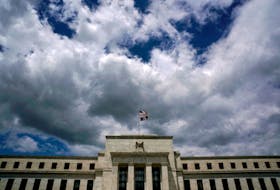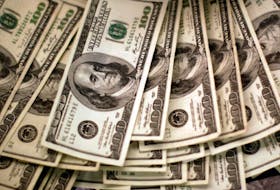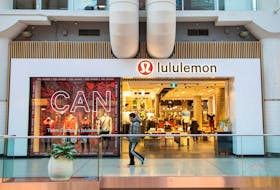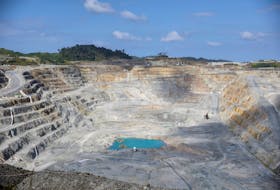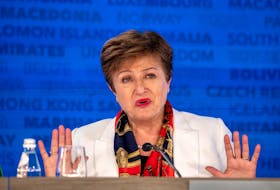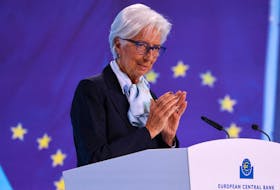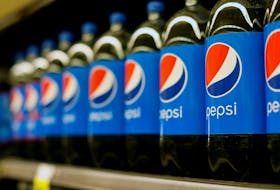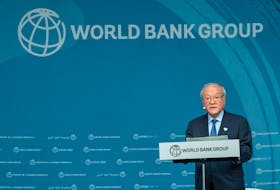By Joseph Nasr
BERLIN (Reuters) - The German economy is starting to recover as curbs to slow the coronavirus are lifted, a business morale survey showed on Monday, and separate output data pointed to the importance of government spending to support the recovery.
Business morale in Europe's largest economy rebounded in May, the Ifo economic institute said, recovering from its worst decline on record in April as a reopening of the economy boosted expectations among companies.
"The German economy is again seeing light at the end of the tunnel," said Ifo economist Klaus Wohlrabe. "But we are still far away from optimism."
Separate data from the Federal Statistics office gave an indication of the damage caused by restrictions to stop the spread of the virus, which pushed the economy into its steepest contraction since 2009 in the first quarter.
A slump in capital investments, private consumption and exports contributed to the 2.2% slump. Ifo said it expects a double-digit dip in the second quarter when the full impact of the restrictions introduced in mid-March become more visible.
Healthy construction and higher state spending were the only bright spots in the otherwise grim data; together, they prevented a deeper contraction. Government spending rose by 0.2% on the quarter and construction grew by 4.1%, the data showed.
Chancellor Angela Merkel's government, which has approved an unprecedented 750 billion-euro rescue package, is due next week to propose additional stimulus to sustain the recovery, which economists say will be slow and partly dependent on how fast Germany's euro zone trading partners return to normal.
"While (social and economic) activity slowed down to 60% of its January level during the peak of the lockdown, it has now returned to more than 80%," Carsten Brzeski, ING's chief economist for the euro zone, wrote in a note to clients.
"However, to offset the economic damage of the last two months, much more acceleration is needed. Therefore, it does not come as a surprise that the German government is currently preparing another fiscal stimulus package," he added.
'CORONA VALLEY'
Merkel's government asked parliament in March to suspend a constitutionally enshrined debt brake to finance the rescue package, which included an unlimited credit scheme to small, medium-sized and large companies.
In a reversal of her opposition to big cash handouts within the European Union, Merkel this month also joined forces with France to allow the bloc's executive arm to borrow 500 billion euros on behalf of its 27 member states and transfer it to the regions and industries hit hardest.
The German stimulus package is expected to include relief for municipalities struggling with lower taxes and support for families, as well as more funds for companies with fewer than 250 employees.
Germany has withstood the crisis better than most of its neighbours, suffering relatively fewer deaths from the virus. Its economy has also weathered the pandemic better, partly because it let factories and construction sites remain open.
But the full scale of the damage caused by the crisis will become apparent in the second quarter.
Ifo said a sub-index in its survey gauging current conditions fell in May, reflecting expectations among company executives that restrictions and disruptions to supply chains will continue to hamper activity.
Fritzi Kohler-Geib of KfW bank said the speed of the recovery hinges on the government's stimulus package.
"Germany is on the right path. The path out of the Corona Valley is long," she said. "To complete it successfully, new confidence in the future is the key. In order to strengthen and consolidate the coming recovery, it is therefore essential to quickly draw up a growth and investment programme."
(Writing by Joseph Nasr)


